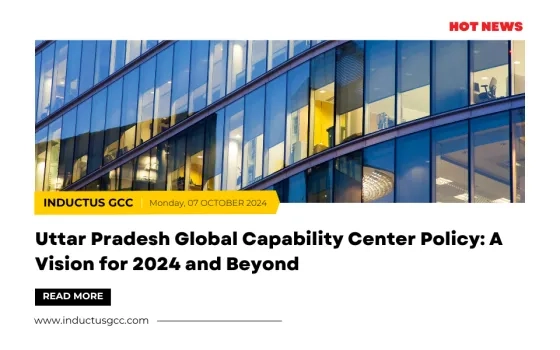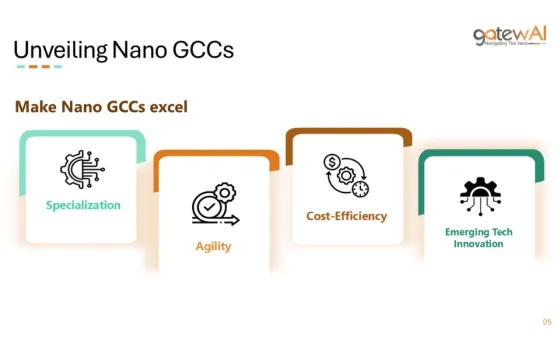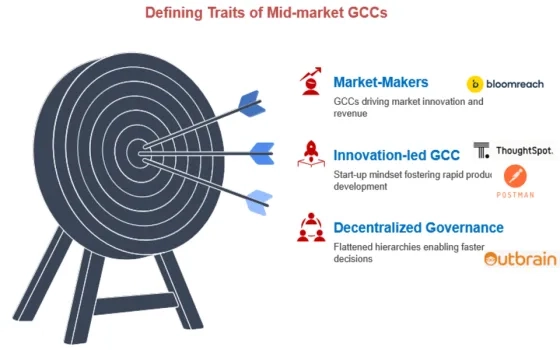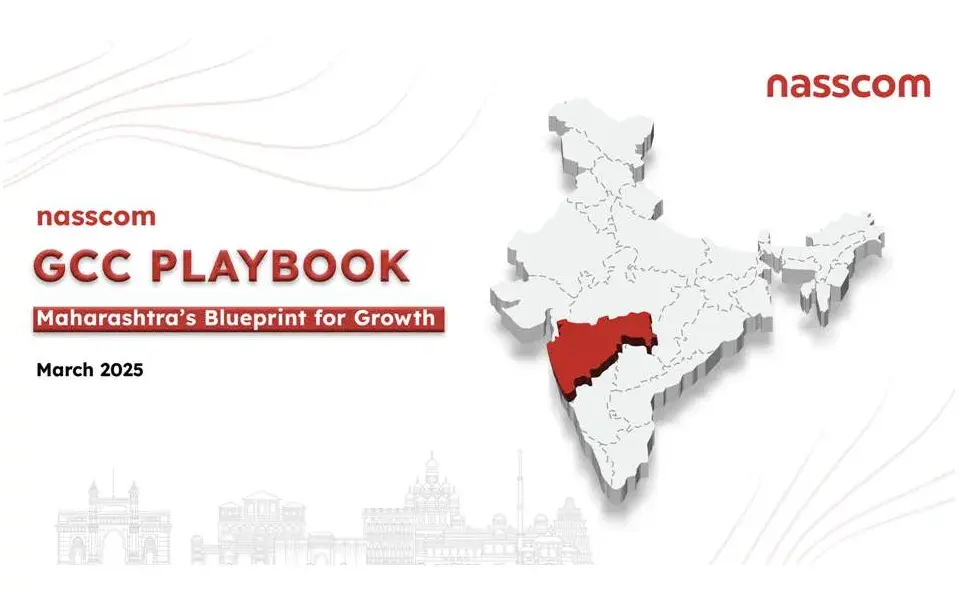Uttar Pradesh Global Capability Center Policy: A Vision for 2024 and Beyond
Uttar Pradesh (UP), India's most populous state and home to 16% of India’s population & talent pool, stands on the brink of a transformative shift as it rolls out its ambitious Global Capability Centres (GCC) Draft Policy 2024. With a dynamic GCC business landscape, a burgeoning talent pool, and vast infrastructure investment, Uttar Pradesh seeks to position itself as a global powerhouse in hosting high-value GCCs for multinational corporations (MNCs).
The Evolution of GCCs in India
Global Capability Centres (GCCs) have come a long way from their inception as cost-saving back-office units to practically a digital and innovative twin of their offshore headquarters. Initially, these centres were established to support routine and mundane business processes routinely. However, with the advancement and deep implementation of state-of-the-art technologies like Artificial Intelligence (AI), machine learning, cloud computing, and robust cybersecurity measures, GCCs have evolved into critical engines providing scalable innovation, driving global business strategy and technological development.
India's dominance in the GCC sector is undisputed and only second to the IT Boom of mid-2000s, contributing over $64 billion to the economy, with expectations to exceed $110 billion by 2030. This explosive growth is not only a testament to India's unmatched talent pool but also a reflection of the country's rising footing as a global innovation hub. The question now is: where will the next wave of investment land? The State of Uttar Pradesh has got its vision and priorities sorted.
Advantage Uttar Pradesh: The New Destination for GCCs
With its strategic location, surplus young & subject matter expert talent pool, along with significant infrastructure investments, Uttar Pradesh is uniquely positioned to ride this wave of unprecedented and unmitigated opportunity. The state’s GCC policy focuses on leveraging its talent, infrastructure, and business-friendly environment to attract MNCs across a variety of sectors and verticals.
Noida, part of the National Capital Region (NCR), has already become a hub for GCCs, hosting global technology giants like Samsung (R&D) and Adobe (SAAS). The state now aims to expand beyond NCR by promoting Tier II and Tier III cities such as Lucknow and Kanpur. These emerging urban centres, with lower costs of living and an abundant workforce, offer an outstanding value proposition for companies looking to scale their GCC operations.
Infrastructure: The Backbone of UP’s GCC Strategy
Uttar Pradesh is making massive strides in enhancing its infrastructure to facilitate GCC investments. The state has already invested over Rs 5.31 lakh crore in CAPEX over the last five years. Projects like the Ganga Expressway and upcoming international airports in Noida and Kushinagar are designed to bolster connectivity and logistics further enhancing the ease of doing business.
Moreover, UP’s focus on becoming a semiconductor and data centre hub with the development of dedicated parks and logistics infrastructure around Noida’s YEIDA region further underscores its readiness to support the next generation of GCC operations. Plans for an AI City in Lucknow and Data Centre Parks position the state as a future hub for digital innovation.
A Talent-Rich State Ready to Power GCCs
One of Uttar Pradesh’s strong suites selling points is its truly vast, employable talent pool. With over 56% of its population in the working-age group, the state boasts one of the largest concentrations of employable young talent in India. Annually, UP produces around 12.75 lakh graduates, and according to recent research, it ranks among the top states in terms of youth employability as it leverages a whole knowledge park section of GB Nagar. This ready-to-hire workforce provides an invaluable resource for MNCs looking to scale operations quickly and cost-effectively.
The state’s premier institutions such as IIT Kanpur, IIM Lucknow, and NIT Allahabad provide a continuous supply of highly skilled professionals in fields like AI, cybersecurity, data analytics, and engineering. These institutions also contribute to the state’s growing innovation ecosystem, with GCCs increasingly investing in research and collaborating with startups in UP’s growing tech hubs.
Innovation and Economic Impact
Innovation is at the heart of the UP GCC Draft Policy 2024. The state envisions creating an ecosystem where GCCs are not only operational but are also centres of research and development (R&D) and innovation. With a target to establish over 1,000 new GCCs, UP aims to foster partnerships between industry, academia, and startups to drive technological advancements in AI and digital engineering.
Additionally, the economic impact of this policy cannot be overstated. The establishment of GCCs will lead to job creation across several sectors and geographies, uplifting Tier II and Tier III cities and reducing regional disparities giving way for an overall inclusive growth. This holistic approach also includes improving the quality of life by investing in urban development, housing, healthcare, and recreational facilities—making UP a desirable place for expert professionals and their families.
Conclusion: The Road Ahead for Uttar Pradesh
Uttar Pradesh’s GCC Policy 2024 is not just a roadmap; it is a bold vision to transform the state into a global leader in hosting high-value business operations for MNCs. By focusing on infrastructure, innovation, and talent development, the state is making a compelling case for itself as the next major destination for GCCs. With the right mix of fiscal incentives, strategic support, and sustainable development, Uttar Pradesh is poised to redefine its future in the global business landscape.
Potential FAQs regarding Uttar Pradesh Global Capability Centres (GCC) Policy 2024
1. What is a Global Capability Centre (GCC)?
Global Capability Centres (GCCs) are strategic units established by multinational corporations (MNCs) to centralize and manage key business functions such as research and development (R&D), product development, data analytics, artificial intelligence (AI), and cybersecurity. While GCCs initially started as cost-saving back-office units, they have evolved into innovation hubs that support MNCs’ global operations, driving digital transformation, technological advancements, and value creation across industries.
2. Why is Uttar Pradesh focusing on attracting GCCs?
Uttar Pradesh (UP) sees an immense opportunity to tap into the rapidly expanding GCC sector. The state offers a strategic location, abundant talent pool, and robust infrastructure, making it an attractive destination for MNCs. The UP GCC Policy 2024 aims to capitalize on these advantages to drive economic growth, create employment, and establish the state as a global leader in digital services, research, and high-value operations.
3. How does the UP GCC Policy 2024 support the establishment of GCCs in the state?
The UP GCC Policy 2024 offers a comprehensive framework that provides both fiscal and non-fiscal support to companies setting up GCCs. Key highlights include:
- Fiscal Incentives: Subsidies on land acquisition, capital investment, and operational expenses; tax exemptions; payroll subsidies for hiring local talent; and reimbursement for R&D initiatives.
- Non-Fiscal Support: Regulatory facilitation, technical guidance, and streamlined processes for setting up business operations.
- Infrastructure Development: Investments in technology parks, Special Economic Zones (SEZs), and world-class connectivity through expressways, airports, and digital infrastructure.
4. What are the primary objectives of the UP GCC Policy?
The strategic objectives of the UP GCC Policy are as follows:
- Establish World-Class Infrastructure to support seamless global operations for GCCs, including sustainable, green infrastructure.
- Implement a Hub-Spoke Model to maximize operational efficiencies and access specialized talent.
- Align Talent with Industry Needs by partnering with educational institutions to create a highly skilled workforce.
- Foster Innovation and Sustainability by encouraging R&D and promoting environmental sustainability across GCC operations.
- Enhance Financial Attractiveness by offering incentives that promote job creation, export growth, and technological innovation.
5. What fiscal incentives are available under the policy?
The policy provides a range of fiscal incentives to attract investments in GCCs, including:
- Land Subsidies: Up to 50% subsidy on land costs
- Stamp Duty Exemption: 100% exemption or reimbursement on stamp duty for land, office spaces, and buildings.
- Capital Subsidy: at the rate of 25% of ECI Up to Rs 25 crore.
- Payroll and Operational Subsidies: Reimbursement of up to Rs 20 crore annually for employee salaries and operating costs for GCCs.
6. What is the 'Hub-Spoke Operating Model' mentioned in the policy?
The "Hub-Spoke Operating Model" is a strategic framework for developing GCCs in Uttar Pradesh, allowing businesses to leverage specialized talent and operational efficiency. The model consists of four components:
- Global Hubs: Independent centres directly working with MNC headquarters.
- Satellite Offices: Subsidiary centres aligned with regional or national business strategies.
- Outsource Centres: Execution centres set up by local partners.
- Outpost/Cluster Offices: Limited physical spaces supporting a remote workforce, primarily in Tier II and Tier III cities.
This model promotes cost-effective operations and talent optimization across different regions within the state.
7. What non-fiscal support is provided to GCCs in Uttar Pradesh?
The UP GCC Policy 2024 provides several non-fiscal supports, including:
- Regulatory Exemptions: GCCs are exempt from certain inspections under state labour laws and pollution control regulations.
- 24x7 Operations: Permission to operate in three shifts and employ women in all shifts.
- Technical Support Group (TSG): A dedicated team of experts will offer regulatory guidance, policy advocacy, and support to smoothen business operations for GCCs.
- Commercial and Technical Partnerships: The state facilitates connections between GCCs and local educational institutions, incubators, and Centres of Excellence (CoEs) for talent recruitment and collaborative R&D.
8. How will Uttar Pradesh’s infrastructure benefit GCCs?
Uttar Pradesh is making substantial investments in infrastructure to support the growth of GCCs. These investments include:
- Expressways like the Ganga, Purvanchal, and Bundelkhand Expressways to enhance logistics and connectivity.
- Airports: Five international and 20 domestic airports, including the upcoming Noida airport, to support global connectivity.
- Data Centres and Semiconductor Hubs: Noida and the YEIDA region are being developed as semiconductor and data centre hubs, with specific parks and clusters designated for technology companies.
- IT Parks and SEZs: Over 40 IT parks and 25 SEZs offering ready-to-use office spaces at competitive rates.
9. What is Uttar Pradesh’s approach to talent development for the GCC sector?
Uttar Pradesh is committed to developing a skilled workforce to meet the evolving needs of the GCC sector. Key initiatives include:
- Educational Infrastructure: The state boasts over 8,375 higher education institutions, including prestigious institutes like IIT Kanpur and IIM Lucknow, providing a steady supply of professionals.
- Vocational Training: Over 3,000 Industrial Training Institutes (ITIs) and 500+ training partners under the UP-Skill Development Mission (UPSDM) ensure ongoing skill enhancement for youth.
- Subsidies for Skilling: GCCs can avail of subsidies for employee training, internships, and industry-specific skill development programs.
10. How will the policy foster innovation in Uttar Pradesh?
Innovation is a central focus of the UP GCC Policy 2024, which includes the establishment of Centres of Excellence (CoEs) in collaboration with academic institutions and industry leaders. The policy encourages investment in emerging sectors such as:
- Artificial Intelligence (AI)
- Machine Learning (ML)
- Blockchain Technology
- Advanced Manufacturing
Additionally, GCCs will be incentivized to collaborate with startups, leveraging the state's 63 incubators and numerous accelerators to create cutting-edge solutions. The state also supports innovation through grants for R&D and intellectual property (IP) subsidies for patent filings.
11. What is the expected economic impact of the GCC Policy on Uttar Pradesh?
The UP GCC Policy 2024 is expected to have a transformative impact on the state’s economy. By attracting more than 1,000 new GCCs, the policy aims to:
- Create over 5 lakh jobs, especially in IT, R&D, and consulting services.
- Promote regional development, especially in Tier II and Tier III cities, reducing the urban-rural economic divide.
- Drive investment in infrastructure, healthcare, education, and recreational facilities, improving the quality of life for professionals and their families.
- Boost the state's GDP through digital services exports, R&D, and technological innovation.
12. What are the eligibility criteria for availing of incentives under the policy?
Eligibility for incentives under the UP GCC Policy is defined based on capital investment and employment generation:
- Level-1 GCCs: Minimum capital investment of Rs 15 crore and employment for more than 500 employees (outside Gautam Buddha Nagar and Ghaziabad).
- Advanced GCCs: Minimum capital investment of Rs 50 crore and employment for more than 1,000 employees.
Units that meet these criteria and commence commercial operations within the stipulated timelines are eligible for various incentives under the policy.
13. What makes Uttar Pradesh an attractive destination for GCCs compared to other Indian states?
Uttar Pradesh offers a unique blend of advantages that sets it apart from other Indian states for hosting GCCs:
- Strategic Location: Proximity to the National Capital Region (NCR) and well-developed transport and digital infrastructure.
- Large Employable Workforce: UP has the largest concentration of employable youth in India, with a strong emphasis on skilling.
- Cost-Effective Operations: The state offers highly competitive office space rents, lower operational costs, and generous incentives for businesses.
- Business-Friendly Environment: UP consistently ranks high in the 'ease of doing business' and offers single-window clearance systems for fast-tracking approvals and reducing compliance burdens.

























